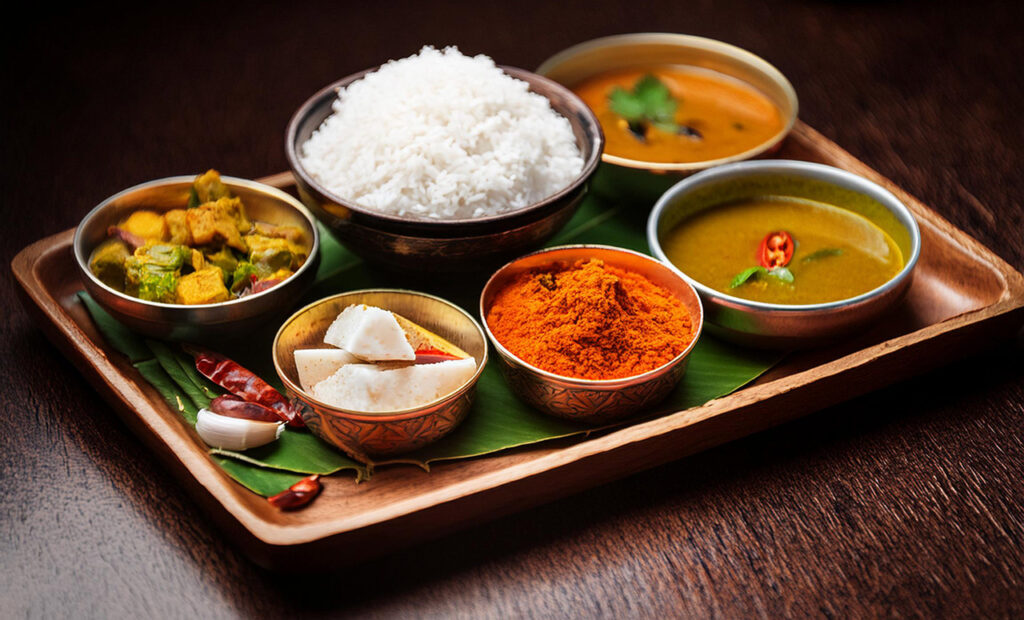During the monsoon season, Ayurveda recommends specific dietary adjustments to maintain balance and health. The damp and cool weather can increase the body’s kapha dosha, leading to imbalances like mucus buildup, sluggish digestion, and respiratory issues. To counter the effects of the weather, Ayurveda suggests traditional diets during monsoon, which includes avoiding certain foods and incorporating others that align with the seasonal changes.
Foods to Avoid During Monsoon:
- Heavy and Oily Foods: Rich, deep-fried foods and excessive oil can aggravate kapha, leading to digestive issues and increased mucus production. Examples include pakoras, samosas, and fried snacks.
- Dairy Products: Items like milk, cheese, and yoghurt can contribute to mucus formation and congestion, which can be problematic during this season. Opt for lighter, more easily digestible alternatives.
- Cold and Raw Foods: Cold foods, beverages, and raw salads can disrupt digestion and lead to imbalances. The cool weather already slows digestion, and adding cold foods can exacerbate this issue.
- Sweet and Sugary Foods: Excess sugar, including sugary desserts and candies, can increase kapha and contribute to weight gain and sluggish digestion.
- Heavy Proteins: Excessive consumption of red meat and other heavy proteins can also increase kapha and lead to digestive difficulties.
Traditional diets during monsoon to Embrace:
- Warm and Cooked Foods: Opt for warm, cooked meals like soups, stews, and steamed vegetables. These are easier to digest and help balance the cool, damp conditions.
- Spices: Incorporate ginger, turmeric, cumin, and black pepper. These spices help stimulate digestion and balance kapha dosha.
- Light Grains: Choose light grains such as quinoa, barley, and basmati rice. These grains are easier to digest and help maintain energy levels.
- Fresh and Seasonal Fruits: Enjoy fruits in season, such as pears, Musambi, Ber, Kiwi, and Wood Apple, but in moderation to avoid excess moisture.
- Herbal Teas: Herbal teas like ginger or cinnamon tea can help digestion and keep you warm.
Additionally, you can fumigate your rooms with dehumidifiers such as Sambrani (also called Loban) to keep them moisture-free.
By following the guidelines of traditional diets during monsoon, you can better adapt to seasonal changes, support your digestive system, and maintain overall health during the monsoon season.




